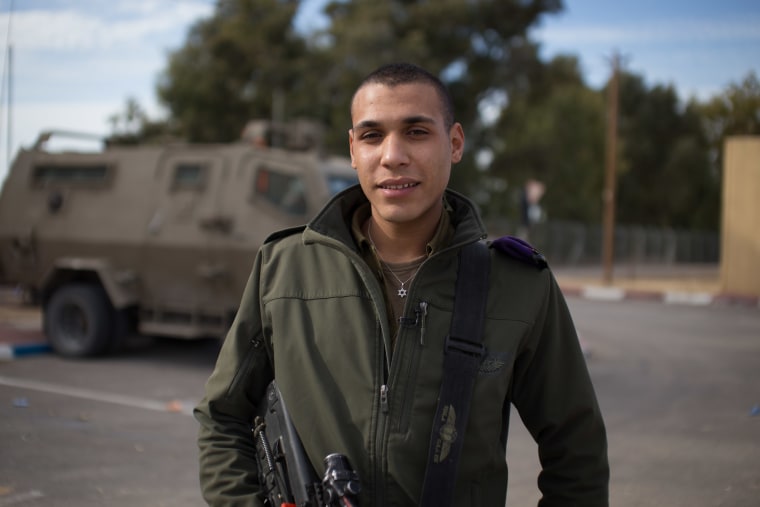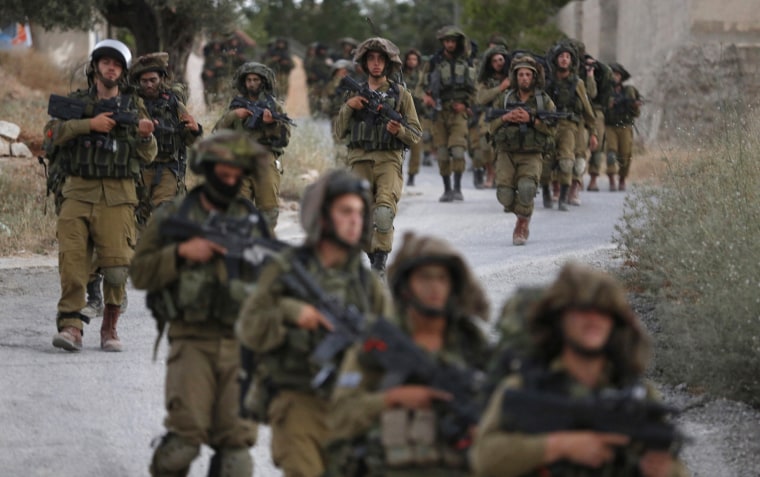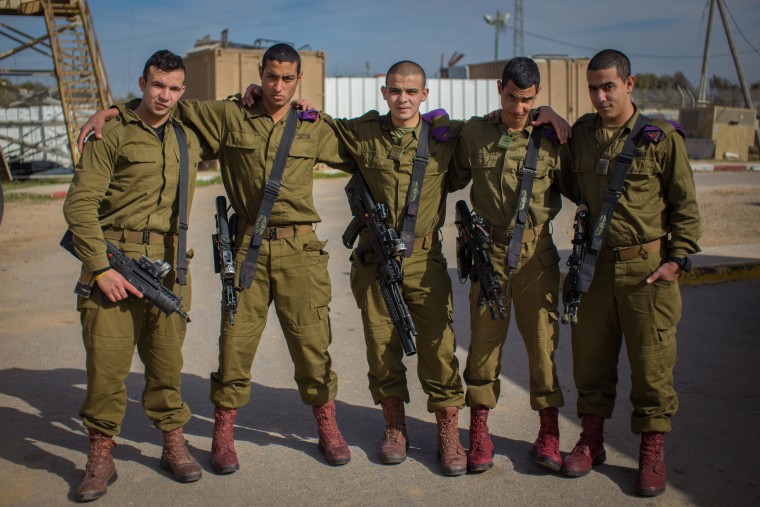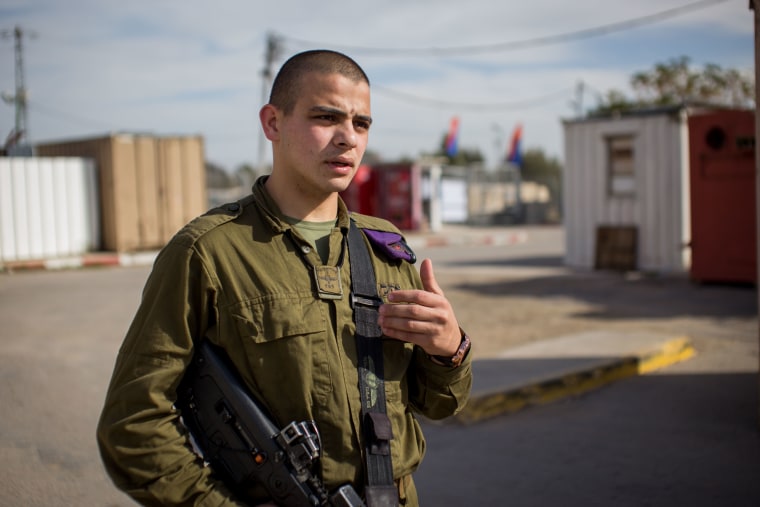KISSUFIM CROSSING, Israel — The Star of David is the best-known symbol of Jewish identity and of patriotism for the state of Israel.
So it may come as a surprise that a six-pointed star hangs around the neck of Sgt. Yossef Saluta, a Muslim Arab.

The 20-year-old poses proudly wearing the necklace and his Israeli army uniform, a rifle slung over his shoulder. He is among a tiny but growing number of Arab Israelis to defy tradition — and often their communities — to serve in the Israeli military.
"There is more openness among Arab Muslims that are not Bedouins to volunteer and join the army," according to Col. Wagdi Sarhan, the head of the minorities unit in the Israel Defense Forces (IDF). "We’re talking about recruitment of dozens of Arab Muslim youth and we are hopeful that the numbers will grow."
Four years ago, the number of Arab Israelis who volunteered for military service was under 10. Today it stands in the dozens, according to Sarhan.
National service is compulsory in Israel, with some exemptions — three years for men and two years for women. This rule also applies to the country's non-Jewish Druze and Circassian communities.
Muslim Bedouins, who tend to identify more as Israeli than other Arabs, and Christian Arabs can voluntarily sign up and each minority is represented by a couple of hundred members of the armed forces.

However, Muslim Arab Israelis have traditionally seen the military as a tool to oppress fellow Arab Palestinians in the West Bank — which Israel captured in 1967 and still occupies — and often avoid military service.
But Saluta does not see it this way — and neither does his family.
"This is my country and it’s my duty to protect its borders," he said. “When I told my family I want to serve, they backed me up."
He admits that his friends gave him "a strange look" when he first made the decision. "But after I told them about my experiences in the army they were convinced to also join."
Saluta's view is not widely shared among Arab Israelis, who make up around one-fifth of Israel's population.
"The army is a great platform to strengthen the bond between the Arab population to Israeli society"
Parliamentarian Yousef Jabareen believes that fellow Arabs should not serve in Israel's military.
"We in the political leadership of the Arab community and the public itself strongly oppose the recruitment of Arab citizens because we cannot be part of an oppressive regime against our people," he told NBC News.
The Israeli army not only imposes Israel's occupation of Palestinian land in the West Bank, it is a way to indoctrinate young people, according to Jabareen.
"The army is also a framework for instilling Zionist Jewish narrative on the recruits, a narrative underlying the denial of the equal status and rights of the Palestinian collective," he added.
But new troops are not necessarily making decisions based on politics. Most believe the army opens doors in Israel according to Sarhan. They believe that being a soldier makes them more Israeli, which in turn garners respect, he said.
Serving is a step toward building a career, said Sgt. Saleh Halil.

"I want to finish my three-year army duty and hope to become a policeman," said the 20-year-old from the Arab village of Judeida Makr in the north of the country.
According to Sarhan, recruitment is growing because of widespread despondency among Arabs. Serving will help them find a purpose and boost confidence, he said.
"The army is a great platform to strengthen the bond between the Arab population to Israeli society,” Sarhan added. "We understand that by serving in the army they will become more connected and more positive towards the state."
Saluta and Halil took their oath to the state while holding the Quran, rather than the Bible as Jewish soldiers do.
But serving in the armed forces doesn't come without hardship and the first few months in are not always easy for the new recruits.
"Suddenly they meet different Israelis who don't always treat everyone equally, so sometimes they feel like they are looked upon differently," Sarhan said.

The other major difficulty these soldiers face comes from how their own communities treat them. It is not easy for these youngsters to be seen wearing a soldier's uniform.
"After basic training I served in Jenin and worked closely with Palestinians," said Halil, referring to a Palestinian city in the West Bank. “You can imagine how surprised they were when I spoke Arabic with them."
But this experience did not dampen his enthusiasm for being a soldier. On a recent evening on a base only a mile away from the Hamas-held enclave of Gaza, Halil took a break from his duties patrolling the border to speak to NBC News.
"It doesn't matter if you are Muslim, Jewish or Christian," he said. "We're all the same with one helping the other."